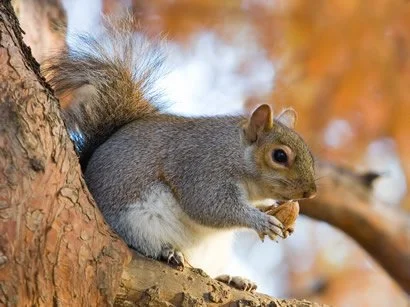What Is News? - Going Green
The cold and dry seasons prove to be a more difficult and challenging time than our seasons of warmth and abundance. Issues with homelessness and hunger become more severe. Impacting these issues will require more than a short article, but alleviating the suffering of those subject to homelessness or hunger is as easy as bringing food or clothes to the nearest person in need. However, humans are not the only creatures who struggle and suffer through these challenging seasons.
An observant look around even the most concrete jungle will reveal a myriad of creatures working for survival. A great benefit can be had by the individual who keeps these creatures in their consideration. When one observes any of these creatures, they will see them engaged in the work of survival. This work provides the daily and future needs of the individual and their family. In this aspect, we as humans can relate to the importance of working for the survival of ourselves and our family.
We can learn a lot from observing nature. Trees produce nuts that squirrels eat. Squirrels bury nuts, some of which eventually turn into trees. Maybe the tree the squirrel is standing on started out as a nut buried by a squirrel.
When we further examine the work that these creatures engage in we see that there is a mutually beneficial result to their efforts. The bee receives honey and pollinates the flower at the same time, the squirrel collects and saves seeds underground. The same squirrel finds and eats some of these seeds over the winter season and the remaining seeds germinate as new trees in the spring. This shows that good work is beneficial for the individual and their environment. We as humans receive fruits from our labor, but how do our actions benefit our natural environment? If our actions do not, then we can consider ourselves to be, simply, exploiting our environment.
It is obvious that this exploitation has resulted in great disharmony. However, this leaves much room for growth, especially for those detached from the natural environment. In any environment, we can observe conditions that are more or less conducive to life. Let’s use the example of lawn. Lawn/grass/sod in the front or back yard of a building constitutes an area of low flora and fauna activity. Few birds or insects frequent the lawn. The lawn is composed of a few varieties of grass and not much rainfall is absorbed by its shallow roots, resulting in drainage problems or flooding. Additionally, the work required to maintain the lawn includes the use of fossil fuels and often the use of harmful chemicals.
The alternative is a garden. A garden may have vegetables or flowers and grasses. A variety of plants will attract birds, squirrels and insects. Just providing a space for these creatures to do their good work will benefit the environment, even while we are at work. Sharing our yard space between lawn and garden will move us in a more harmonious direction. It will take only a little work and providing a habitat for creatures who need it for food and shelter has the mutual benefit of allowing them to help us save our environment.

